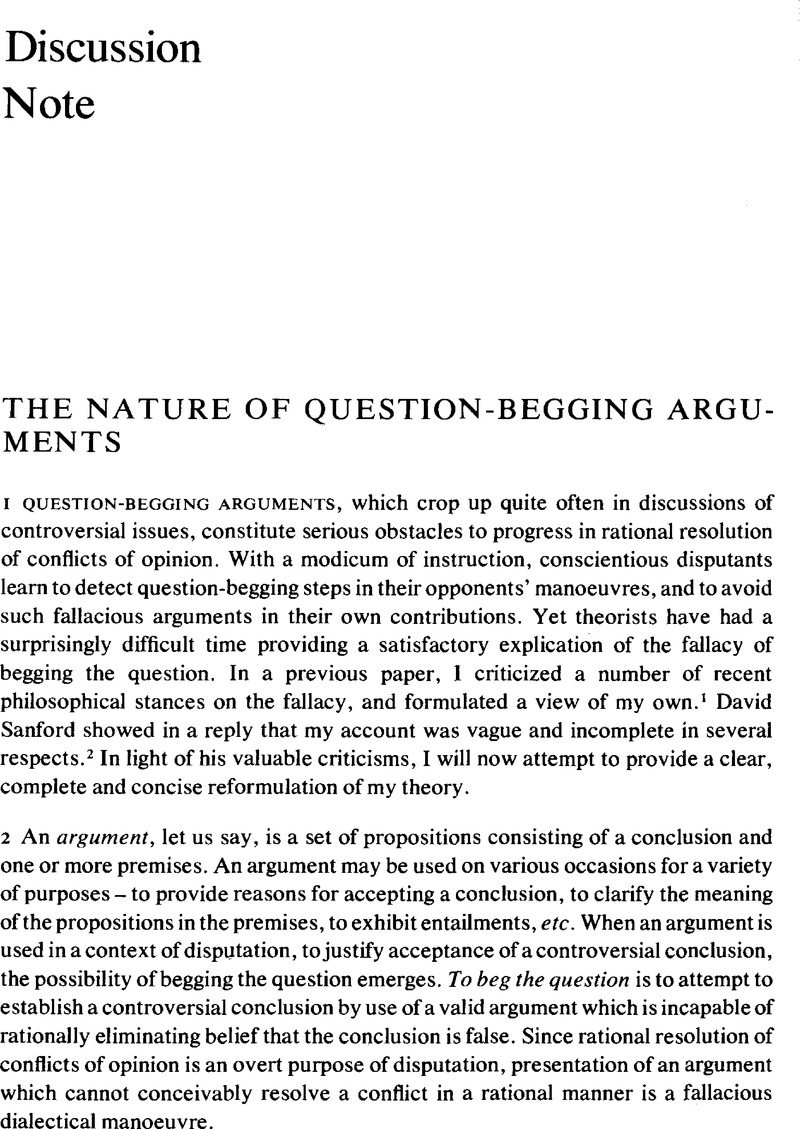Article contents
The Nature of Question-Begging Arguments
Published online by Cambridge University Press: 05 May 2010
Abstract

- Type
- Discussion/Note
- Information
- Dialogue: Canadian Philosophical Review / Revue canadienne de philosophie , Volume 17 , Issue 3 , September 1978 , pp. 490 - 498
- Copyright
- Copyright © Canadian Philosophical Association 1978
References
Notes
1 Barker, John A., “The Fallacy of Beggingthe Question,” Dialogue 15 (1976) pp. 241–255.CrossRefGoogle Scholar
2 Sanford, David H., “The Fallacy of Begging the Question: A Reply to Barker,” Dialogue, 16 (1977) pp 485–98.CrossRefGoogle Scholar The influence of Sanford's critique on the present paper is so pervasive that no point-by-point acknowledgements will be attempted. The paper has profited also from “Petitio and Relevant Many-Premised Arguments”, by Woods, John and Walton, Douglas, Logique et Analyse, 20 (1977) pp. 97–110Google Scholar.
3 See Anderson, Alan Ross and Nuel D, Belnap Jr. Entailment (Princeton University Press, 1975)Google Scholar.
4 For discussion and defence of the view that acceptance of a system of relevance iogic, even for purposes of explicating validity, does not entail acceptance of the claim that there is something wrong with detachment inferences based on truth-functional relationships, see Barker, John A. “Relevance Logic, Classical Logic and Disjunctive Syllogism” Philosophical Studies 27 (1975), pp. 361–376CrossRefGoogle Scholar. For criticisms, see Stephenson, G. H. “Entailment, Negation and Disjunctive Syllogism,” same issue, pp. 377–387Google Scholar.
5 For a discussion of such justifications of induction, see Swinburne, Richard (ed), The Justification of Induction (Oxford University Press, 1974)Google Scholar, Chapter VIII.
6 I am indebted to David Sanford for personal conversations and correspondence which have been very helpful to me in developing my views on this topic. Referee's comments on earlier versions of this paper have also been of assistance.
- 4
- Cited by


